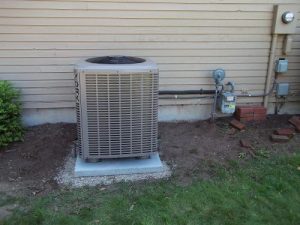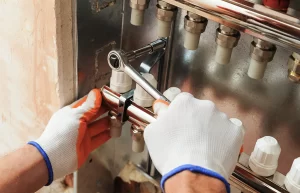Over the past decade, natural gas production has seen a sharp incline, making the US an extremely strong player in the world’s natural gas market. This increase in production and supply is having a clear effect on the gas industry, both home and abroad. Production and natural gas availability doesn’t appear to be slowing down anytime soon, according to a number of studies.
In fact, shale production has been so vigorous nationally that the price of natural gas has dropped below $4 per million BTUs — generally considered the point at which many gas wells become profitable. But with trillions of cubic feet of natural gas waiting to be extracted, prices aren’t expected to rise unless the U.S. begins to export substantially.
“The surge in domestic production of natural gas over the past few years has been a game-changer that’s benefitting our customers and our economy,” said Booga Gilbertson, PSE (Puget Sound Energy) Vice President of Operations. “What hasn’t changed, though, is PSE’s fundamental game plan for giving our customers safe, dependable, efficient energy service.”
This surge in production is being met with fierce debate all over the country, including right here in the Northwest. As with any natural gas production or extraction project, natural gas exports through a proposed port facility in the Pacific Northwest are coming under scrutiny due to both environmental and economic factors. Many residents oppose the project for a variety of reasons. Some are strongly against the exporting of natural gas resources because they feel the gas should be kept here to meet growing demand rather than shipped overseas to allow natural gas companies to increase their geographic footprint. Others strongly oppose the natural gas project because of environmental impact uncertainty. Many studies widely discourage extracting natural gas from shale formations because of safety concerns and negative environmental impact. Some families and individuals simply don’t want to lease or sell parts of their land for pipelines or drilling wells.
As much of the Seattle market is dependent on natural gas for home heating, water heating and cooking, and area utilities rely on natural gas for power generation (16% of current power generation and growing), customers in our area will be impacted by resolutions to these types of debates and projects moving forward. According to PSE’s 2013 Integrated Resource Plan (IRP), 20 years from now PSE will need about 40 percent more natural gas supply to serve its customers’ demand for gas during peak winter months. Since natural gas production has grown so much over the past decade, it is seen as one way to meet the growing demand without sending energy costs for consumers through the roof.
However natural gas production projects and debates like these turn out, there is certainly a need for additional actions and resources to meet growing energy demands. According to PSE, the best way to meet the growing energy needs of consumers in our area will be to promote energy efficiency. On top of increased energy efficiency, PSE says the area will have to rely on an increased amount of renewable energy as well as the acquisition of additional power supplies to meet the demands of consumers, especially during peak usage times. PSE remains fully committed to increasing renewable energy to meet and exceed legal expectations. In fact, PSE is the top utility producer of renewable energy in the Northwest, generating renewable energy from its three large wind farms in Washington.







